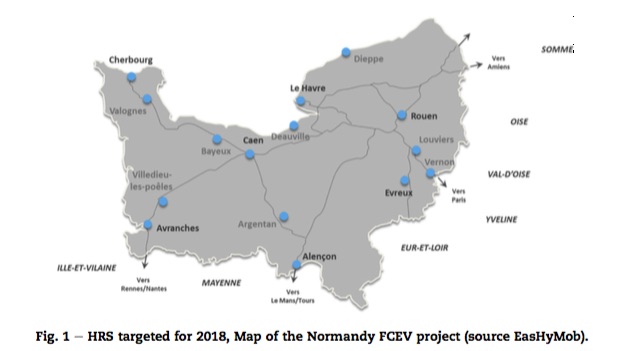Article publié dans The International Journal of Hydrogen Energy (24/12/16)
The paper provides a cost benefit analysis of one of the most prominent Fuel Cell Electric Vehicle deployment project in France, taking place in Normandy.

The project builds on the substitution of a diesel Kangoo by an electric Kangoo ZE with a fuel cell range extender for public fleets. The sustainability of the scenario as it is envisioned today is questioned. A second scenario is explored. It builds on a more aggressive investment in infrastructure so as to generate a higher market share for FCEV, including long range vehicles and buses on top of light duty vehicles. It is shown that the resulting higher consumption of hydrogen would be a strong lever to reduce the cost of hydrogen refuelling stations as well as the transportation cost of hydrogen that would now be associated with on-site hydrogen production. This scenario may require a higher level in public funds at the early deployment phase but would deliver much better chances to achieve sustainability.
Séminaire en présence d'Adam George (SOAS, University of London). Adam George présente un modèle macroéconomique SFC environnemental britannique intégrant émissions de CO2 et investissements verts de tous les agents économiques. Le modèle trimestriel analyse l'impact des politiques énergétiques selon le rapport capital vert/capital conventionnel. Quatre scénarios fiscaux verts sont testés (2022-2035) : taxe carbone, investissement...
Le laboratoire GAEL (Grenoble Applied Economics Laboratory) et la Chaire Energie et Prospérité organisent un workshop sur l’économie de la bioénergie les jeudi 9 et vendredi 10 octobre 2025 sur le campus universitaire de Grenoble.


